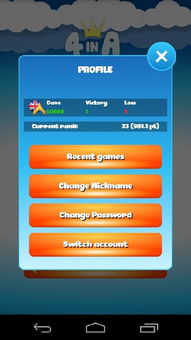How Online Multiplayer Games in Unity Make Money
Online multiplayer games have become a significant source of revenue for developers, especially those using Unity, a popular game development platform. In this article, we will explore various ways in which online multiplayer games in Unity generate income. By understanding these methods, you can better strategize your game development and monetization efforts.
Microtransactions

One of the most common ways online multiplayer games in Unity make money is through microtransactions. These are small purchases that players can make within the game, often for cosmetic items or in-game currency. Here’s how it works:
-
Players can purchase in-game currency using real money.
-
With this currency, players can buy various items, such as skins, avatars, or special abilities.
-
These items can enhance the player’s experience, making the game more enjoyable and competitive.
Microtransactions are particularly effective in games with a strong community and frequent updates, as they keep players engaged and encourage them to spend money to keep up with the latest trends.
Subscription Models

Another popular monetization strategy is the subscription model. This involves charging players a monthly or yearly fee to access the game and its features. Here’s how it works:
-
Players pay a recurring fee to play the game.
-
This fee grants them access to all game content, including new levels, features, and updates.
-
Subscriptions can be a steady source of income for developers, as long as they continue to provide quality content.
Subscription models are particularly effective for games with a large, dedicated player base, as they encourage players to commit to the game over the long term.
Advertising

Advertising is another way online multiplayer games in Unity can make money. Developers can integrate various types of ads into their games, such as:
-
Static banners: These are simple images that display ads within the game.
-
Video ads: Players can watch short video ads in exchange for in-game rewards.
-
Interstitial ads: These are full-screen ads that appear between game sessions.
While advertising can be an effective way to generate revenue, it’s important to balance it with the player experience. Too many ads can be intrusive and negatively impact the game’s enjoyment.
Licensing and Cross-Promotion
Licensing and cross-promotion are additional ways online multiplayer games in Unity can make money. Here’s how it works:
-
Developers can license their game to other platforms or companies.
-
They can also collaborate with other developers or brands to create cross-promotional content.
-
This can help increase the game’s visibility and attract new players.
Licensing and cross-promotion can be particularly beneficial for games with a strong brand or unique gameplay mechanics.
Merchandising
Merchandising is another way online multiplayer games in Unity can generate income. Developers can create and sell branded merchandise, such as:
-
Merchandise featuring the game’s characters and artwork.
-
Collectible items, such as action figures or trading cards.
-
Custom apparel, such as t-shirts or hats.
Merchandising can be a lucrative way to generate additional revenue, as long as the game has a strong fan base and recognizable brand.
Conclusion
Online multiplayer games in Unity have numerous ways to make money, from microtransactions and subscriptions to advertising and merchandising. By understanding these methods, developers can create successful and profitable games. It’s important to find the right balance between monetization strategies and the player experience to ensure long-term success.
| Monetization Method | Description |
|---|---|
| Microtransactions | Players purchase in-game items using real money. |
| Subscription Models |


